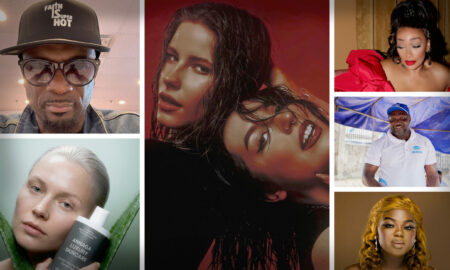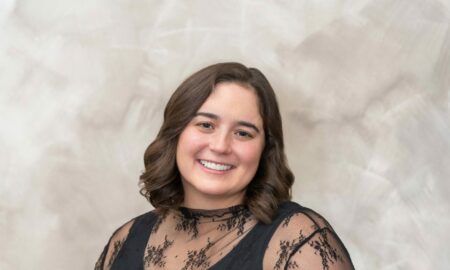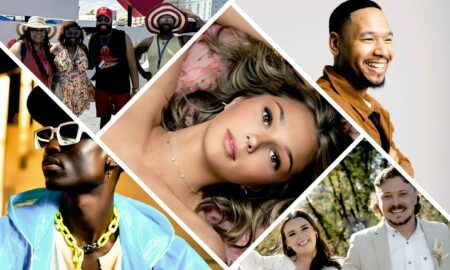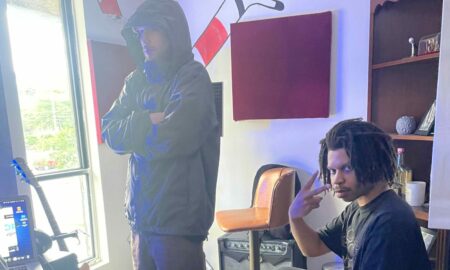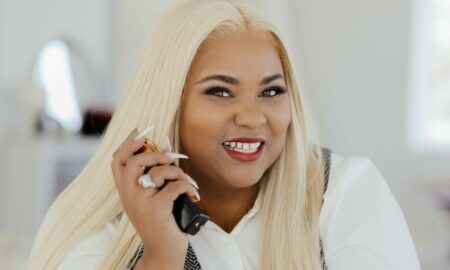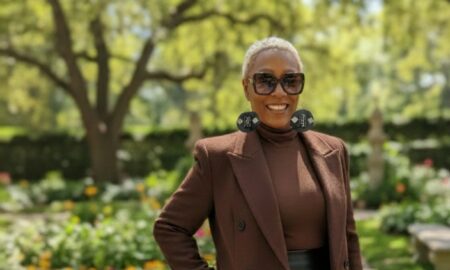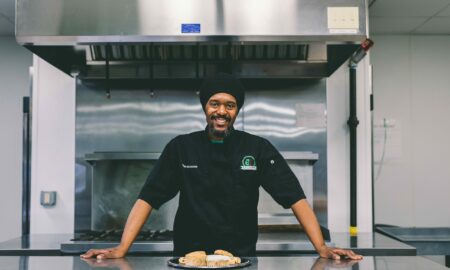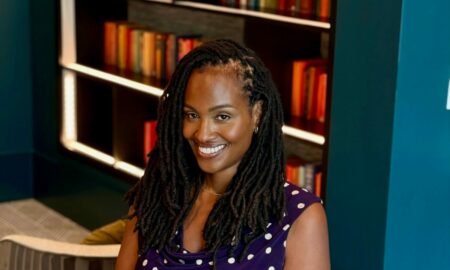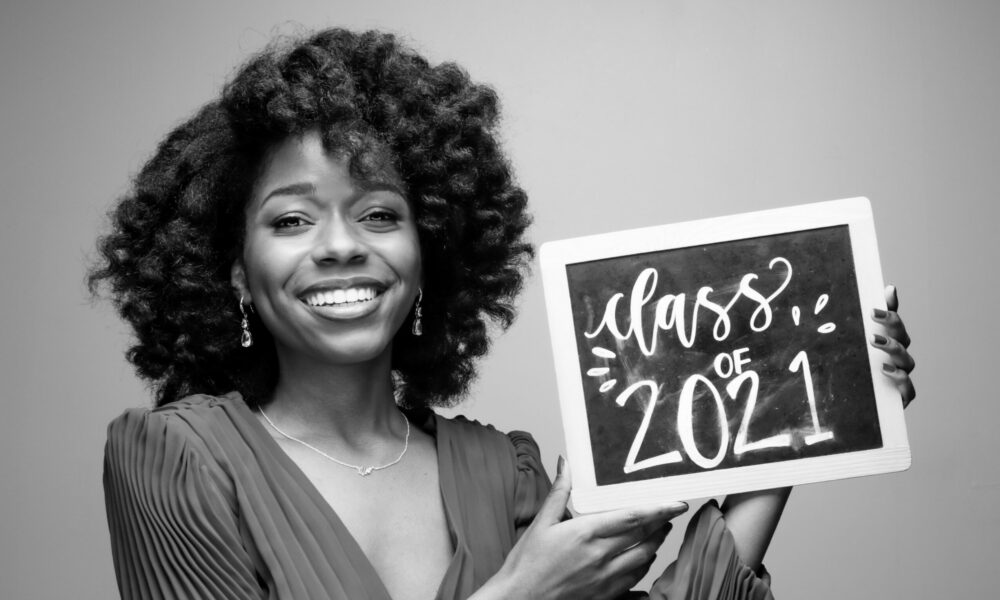

Today, we’d like to introduce you to Madison Webb. Madison was introduced to us by the brilliant and talented Osazi Al Khaliq.
Madison, thank you so much for joining us today. We’d love for you to bring our readers up to speed – can you introduce yourself and share your story?
A lot of what has shaped me into the woman that I am today has to do with my high school experience.
At the beginning of my freshman year, my family and I lost our home due to financial hardship. This had a significant impact on my grades, mental health, and motivation. At the time, I was in the Visual/Performing Arts magnet program at North Springs Charter High School. But after we lost our home, I was forced to transfer out of that school since our new residence was so far away.
My family and I resided in the home of a family friend in Clayton County for half of my high school career. The commute to my new school wasn’t easy, since my mom thought it would be best for us to go to school in the county where we grew up (Fulton County). This meant that the commute to and from school would be 1-2 hours on most days. The commute and financial restrictions hindered my ability to join all of the extracurriculars that I wanted. But, that didn’t stop me from prioritizing my favorite extracurricular: debate.
Debate is what enhanced my public speaking skills and how to view our world’s issues through multiple lenses. It made me a better writer, leader, and student. But since our school’s debate team couldn’t afford to compete in official tournaments, my coach recommended me for the Harvard Debate Council Diversity Project: an Atlanta-based pipeline program that matriculates Black youth into a summer debate residency at Harvard.
This program exposed me to the rigor of an Ivy League education—something I thought I’d never be exposed to in a lifetime. We learned about political science, political science, rhetoric, and formal debate training. This program is the reason I won the competition at Harvard’s summer debate residency. And I was the first Black girl to ever do it.
At the beginning of my high school career when we lost our home, I thought that I wouldn’t have another opportunity to attend a school that would cultivate my curiosity and intelligence. But joining debate and pushing myself past my preconceived limits is what gave me the confidence to apply to Harvard—in the middle of a pandemic.
I was eventually accepted, and I couldn’t believe it at first. Then, I remembered the tenacity that I developed throughout my high school career, despite the circumstances.
I am who I am today because of my challenges. I believe them to be life’s greatest lessons.
Let’s talk about your work and career – what else should we know?
I’ll never back down from a challenge. No matter the circumstances. When my school enforced a clear book bag policy, I saw this as a chance to challenge the system. I interviewed and wrote a letter to several people on my school’s administration about the invasion of privacy that the policy has brought upon students. This is just one example, but I was only 15 years old when I advocated to abolish my school’s clear book bag policy. This shows that despite my age and the perceived concreteness of the policy, I still took the initiative to advocate for the needs/interests of my student body, This one instance of leadership led me to applying my leadership skills in other avenues. I currently serve as Executive SGA Student Body President of my school, and served as 11th grade president prior to that. Before both of those positions, I served as a mentor for freshman in a club called Link Crew. I also started a club for students with special needs as my school, as I have a sister with Down Syndrome. This idea was sparked from my attendance at the National Down Syndrome Conference. I collaborated with about 20 other siblings of individuals with Down Syndrome, and we sent blankets in care packages to families at local hospitals that were expecting babies with Down Syndrome. I knew that I had to extend this impact to my school community, so I started a club where we host game nights and movie nights for the special education community. During COVID-19, this interactive space helped them to feel more connected to their peers. Lastly, I am my school’s varsity debate captain. I lead a small team of all Black women. In the white and male-dominated space of debate, this is a powerful statement as Black women. We are the minority in this space, yet we advanced to our state championships, and we won first place at the AUDL Varsity State Debate a Championship. In the future, I’ll be attending Harvard University to study sociology or economics, in pursuit of a career in law or journalism afterwards. I can see my leadership skills and passion for debate paying off in both of these fields.
As you know, we’re big fans of Osazi Al Khaliq and we know you’ve worked with them quite a bit as well. We’d love to hear about your experience working with Osazi Al Khaliq.
I met Osazi through a program called the Harvard Debate Council Diversity Project: an Atlanta-based pipeline that trains and matriculates Black youth into a summer debate residency at Harvard. He was in the inaugural cohort, and I was two years behind. As such, he has helped to mentor me and my classmates during the HDCDP program. He was one of the teachers when I was in formal debate training for the residency at Harvard in the summer.
His teaching style during the training period was one that is heuristic. He didn’t just teach, but he taught me to learn from myself through introspection. It was beneficial because it taught me to think on my own instead of relying on someone else. The way he built this confidence within myself is what contributed to me winning the Harvard debate competition at the residency.
After the training period, he offered his college coaching services to HDCDP members. Knowing how effective his teaching style was, I took up the offer.
Since the pandemic started towards the end of my junior year, this meant that many of my SAT and ACT exams were canceled. A lot of my extracurriculars were discontinued as well. As I was entering the college application process that fall, I had no idea how I was going to get accepted into my top schools without these important factors.
In my senior fall, I had my first meeting with Osazi. I expected him to give me a rundown of everything that I needed to put in my college application to be a competitive applicant for my top schools. It was to my surprise that he did the complete opposite. I distinctly remember one of the very first questions he asked me in my process was, “What is your biggest insecurity?”
What I thought would be a 30 minute rundown of topics that I need to discuss in my essay turned into a 2 month long process of digging, questioning, and understanding. This single question prompted me to reflect on my life—including childhood experiences, setbacks, triumphs, and more.
He prompted me to write down everything that I was feeling in the moment that he asked me that question.
Two weeks later, I came back with a 6 page paper about my biggest insecurity and why it shaped me into who I am today.
At the time, I didn’t know that this 6 page paper would be my 650 word Common App Essay. I couldn’t comprehend how Osazi could lead me to condensing my life story into 650 words. But during our weekly meetings, Osazi continued to emphasize that I should focus on what parts are most “beautiful”. I grew frustrated because I thought that my entire story was beautiful. Osazi told me that I was mistaken. Here’s why:
Through his coaching, he taught me that, while my entire story is beautiful, the most beautiful parts are the parts where I reflect. Where I develop. Where I blossom. He emphasized that most students simply tell the story, but don’t show it. At the beginning of the process, I was used to using blanket statements instead of supporting them with imagery and other literary devices that we neglect. Little did I know that this is how I can make my story come alive for the reader.
And this is what college admission officers are looking for.
Osazi helped me to realize that admission officers are just as human as I am. So, while I was worried about being disadvantaged as a test-optional applicant due to COVID-19, Osazi reassured me that the weight is placed on the person—not a score. These people want to see beauty. Art. A masterpiece.
Osazi taught me that I had all the tools to create something beautiful, artistic, and masterful. I learned that these tools were within. He helped me to realize that the only reason I haven’t tapped into my masterpiece is because I haven’t asked the questions to get there. The introspective questions.
These introspective questions were the essence of his pedagogy throughout the process. Not once did he instruct me to “write this instead” or ask “may I suggest wording it this way?”
The writing process was pure questioning. It birthed my piece “Beauty In the Beast”, which earned me a spot in the Harvard Class of 2025, along with a Duke, Vanderbilt, the University of Georgia, and many others.
After the process was over, Osazi had me write a piece to perform vocally. After learning to use the tools from his writing process, I led the writing process this time.
Throughout this process, I learned to appreciate complexity. My writing process with Osazi lasted 2-3 months. And it was worth every minute. I told him that every writing session felt like a therapy session, because there was so much introspection, reflection, and realization.
I didn’t stop using these tools when I was finished with Osazi’s services. I now ask myself the hard questions. They help me realize the things that get overlooked. And these are often the most beautiful pieces to my story and what makes me, me.
Instagram: @maddyrachelle
Linkedin: http://linkedin.com/in/madisonwebb118





